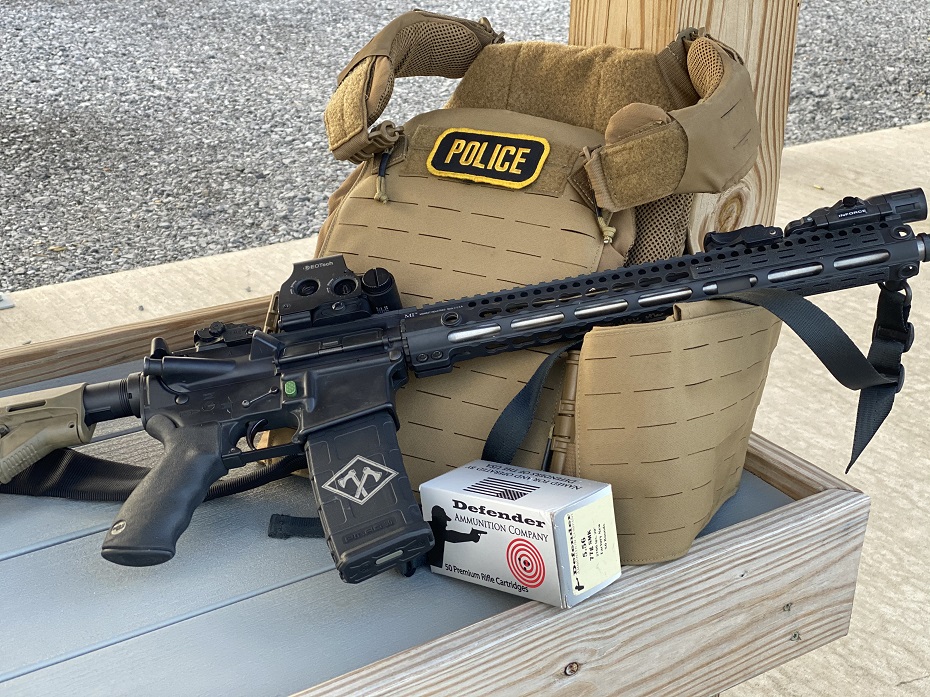A while back, a picture from 2013 of a Law enforcement officer at a critical incident with his optic mounted backwards had surfaced again with renewed criticism from the peanut gallery. This is not the first or only photograph of an officer with an optic on backwards or a magazine inserted backwards. When you read through all the chatter and propaganda from social media and the interwebs there is very little accountability or educational information. Yes, there are all kinds of wrong going on, but as with most photos we are missing the context, and in this case the point. How many failures led to this officer (or others doing the same) showing up to a critical incident completely ill-prepared to deal with the situation? Who else bears responsibility for the officer’s lack of preparation? Whose fault is it?
Yes, it will always be the officer’s fault. Their fault they didn’t know the optic cannot work backwards. Their fault they didn’t know you have to zero an optic after you mount it. Their fault they should have done a function check (several times) before arriving at the scene. Their fault they blew off their department trainers? Their fault to know what they don’t know? As an eternal student always looking to improve our position, we should understand there are a great many things we don’t know. As an end-user we should always ask questions, understand why we do the things we do, find out if there are other ways to do what we do and seek feedback. This might mean getting training outside of what the department provides.
How about his fellow officers? Are we so self-involved that we don’t do buddy checks anymore? It can’t be just a special teams activity to conduct inspections. It is the last part of troop leading procedures in every manual and PowerPoint, BAMCIS, RIMSRCIS. SUPERVISE – inspections, rehearsals and briefbacks. All of this can be accomplished during training. It doesn’t have to be formal, scheduled training. Senior or experienced officers should constantly develop other officers and provide feedback. How about instead of making fun of them, you help them out? After all they represent every officer on the street. Has anyone ever watched pilots conduct pre-flight inspections? They each go through their checklists and do it verbally so the others can hear them check each item. Is their task more life and death than a responding police officer to a critical incident or even just starting patrol? No.
Does some of the blame fall on the department trainers? Did they provide the best training and information within the constraints applied by management? Time, equipment, venues, enough trainers, job knowledge, support etc. Did they just do enough to “check the box” or worse pencil whipped it? Did they just tell the end-user what to do, without any understanding of why they do it that way or what it accomplishes and how it benefits them? Did they provide feedback to the officers or just run the qualifications? Did their officers leave better than when they got there? Were the trainers so intimidated or beat down they failed to challenge management to support the proper training of the department’s officers? In the end did they do the best they could to support the end-user in the field?
Management, yes, I used that word instead of leadership. To me: management manages assets, to include man-power and leadership develops its people though proper allocation of resources and setting the example. Does management provide enough time for proper training and remediation? Do they listen to their trainers needs and then provide them with the proper resources to provide good training? Are they able to increase allotted training time while still leaving patrol with enough officers to accomplish their job safely? I understand training costs time and man-power. Are they fighting to get more officers to create a balance that provides more time for training? I have sat in this seat and it always comes down to having more officers makes it easier to have a good balance. I would wager (rather heavily) that a better trained force, in the end costs less than all the liability (both civil and loss of officer) of an untrained force. Are you willing to invest that up front as a leader?
In the end, we all share responsibility for that officer not showing up prepared for the task at hand. This is just the start of the conversation. It all starts with a spot check of ourselves. How can I support the officer standing next to me? Am I the best I can be? What more can I do, on and off the clock? Can I improve other officers’ knowledge and understanding? Be knowledgeable, challenge bad management, set the example, raise the standard. Be safe.
*The views and opinions expressed on this website are solely those of the original authors and contributors. These views and opinions do not necessarily represent those of Spotter Up Magazine, the administrative staff, and/or any/all contributors to this site.

